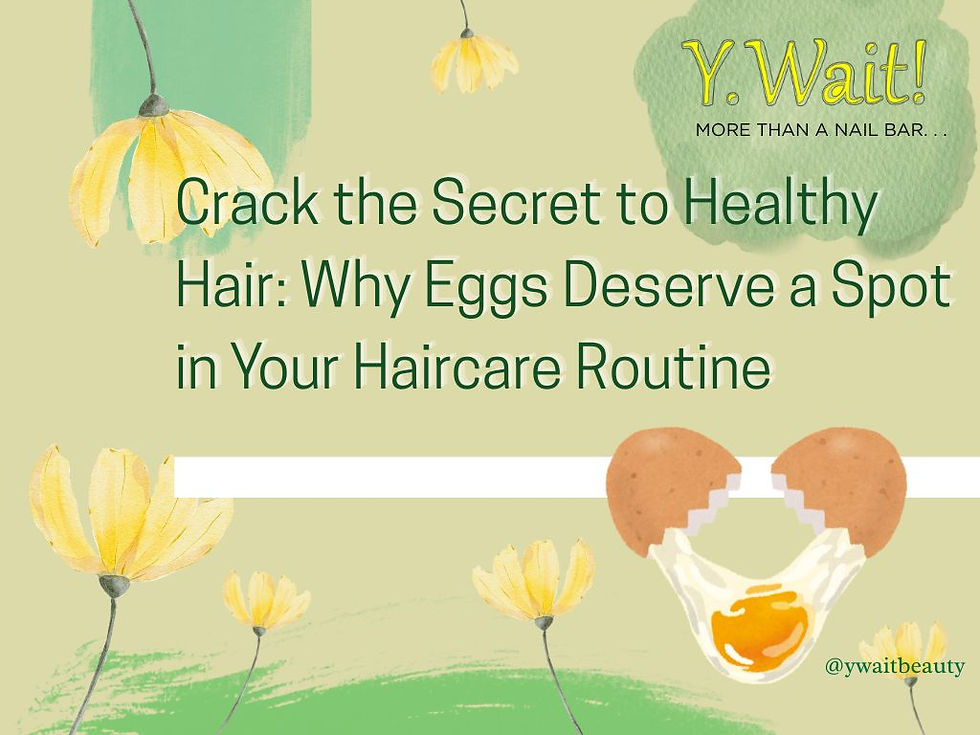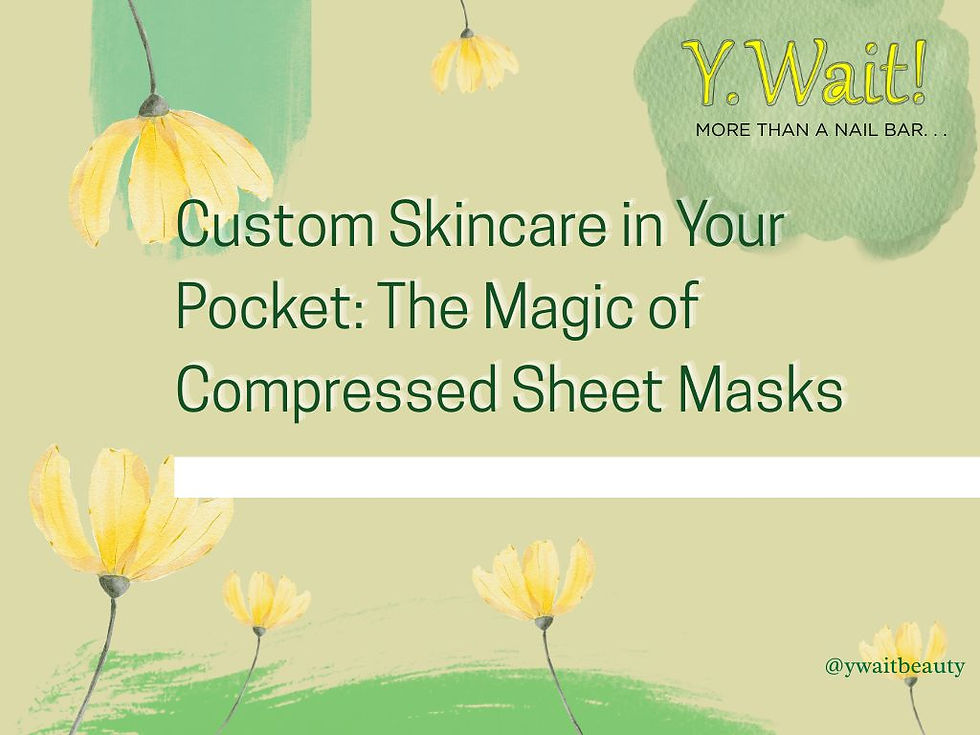Sunscreen! Why you NEED it & when to use it.
- Y.Wait Beauty
- May 13, 2024
- 2 min read

Dear Y.Wait! fans, we hope you had an amazing weekend, let's have a heart-to-heart about a skincare essential that often gets overlooked: sunscreen. Whether you're shuttling the kids to football practice or enjoying a leisurely day at the beach, wearing sunscreen is non-negotiable for maintaining healthy, radiant skin.
Sunscreen isn't just about preventing sunburn—it's your first line of defense against the sun's harmful ultraviolet (UV) rays, which can wreak havoc on your skin. From premature aging and dark spots to the risk of skin cancer, the sun's rays can cause long-term damage that affects your skin's health and appearance.
Here's the thing: regardless of your skin color, sunscreen is a must. While it's true that melanin provides some natural protection against UV radiation, it's not enough to shield your skin completely. People of all skin tones are susceptible to sun damage, so wearing sunscreen is essential for everyone, regardless of whether you burn easily or tan effortlessly.
But don't worry, finding the perfect sunscreen doesn't have to be a daunting task. Look for broad-spectrum formulas with SPF 30 or higher, as they offer protection against both UVA and UVB rays. Opt for lightweight, non-greasy options that won't clog pores or leave a white cast, making them perfect for daily wear under makeup.
Now, let's delve into the mysterious world of SPF—the superhero of sun protection. SPF stands for Sun Protection Factor, and it's a measure of how well a sunscreen protects your skin from UVB rays, which are the primary cause of sunburn and contribute to skin cancer risk.
Essentially, SPF indicates how long it would take for your skin to burn when using a sunscreen compared to how long it would take without any protection at all. For example, if you typically start to burn after 10 minutes in the sun, using a sunscreen with SPF 30 theoretically extends that time to 300 minutes (10 minutes multiplied by SPF 30). However, it's important to note that this calculation is based on ideal conditions and assumes that you're applying sunscreen generously and frequently.
Now, here's the kicker: a higher SPF doesn't necessarily mean better protection. While it's tempting to reach for the sunscreen with the highest SPF on the shelf, there's a diminishing return on investment as SPF increases. For instance, SPF 30 blocks about 97% of UVB rays, while SPF 50 blocks about 98%. The difference is minimal, and NO sunscreen offers 100% protection.
Moreover, higher SPF sunscreens may give people a false sense of security, leading them to spend more time in the sun without reapplying sunscreen frequently enough. This can increase the risk of sun damage, despite the seemingly higher SPF.
So there you have it, natural product advocates. Embrace the power of sunscreen and protect your skin from the sun's harmful rays. Your future self will thank you for it! And remember, when it comes to SPF, it's not about the highest number—it's about consistent application and finding a sunscreen that works for you. So find your perfect match and shield your skin with confidence.



Comments